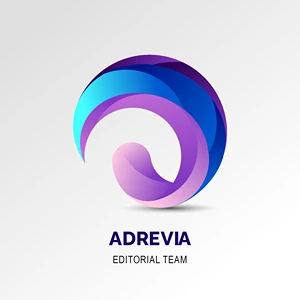What exactly is this Uniswap business?
A walkthrough for novices of the well-known decentralised exchange, also known as a DEX, that operates on the Ethereum blockchain. It enables users in any part of the world to trade cryptocurrencies without the need for a middleman.
The Ethereum blockchain is home to the world’s biggest decentralised exchange, known as Uniswap (or DEX for short). It enables users in any part of the world to trade cryptocurrencies without the need for a middleman. As of April 2021, the entire value of UNI, the governance token that enables users to vote on crucial protocol modifications, is more than $18 billion, making it the fourth biggest cryptocurrency by market cap.
Launched in November 2018, Uniswap was one of the first decentralised finance, or DeFi, apps to acquire considerable interest on Ethereum. Uniswap was one of the first applications of its kind. Since then, a great number of additional decentralised exchanges have been introduced, such as Curve, SushiSwap, and Balancer; nonetheless, Uniswap is presently the most popular decentralised exchange by a wide margin. Uniswap had processed more than $10 billion in weekly trade volume as of April 2021.
Uniswap was an early innovator of the Automated Market Maker model. In this model, users contribute Ethereum tokens to “liquidity pools” on the Uniswap platform, and algorithms determine market prices (as opposed to order books, which match bids and asks on centralised exchanges like Coinbase) based on the supply and demand of the cryptocurrency market.
Users have the opportunity to earn incentives while also making peer-to-peer trading possible when they contribute tokens to the liquidity pools of the Uniswap platform. Tokens may be supplied to liquidity pools by anybody, located anywhere, tokens can be traded, and users can even generate and publish their own tokens (using Ethereum’s ERC-20 standard). Uniswap is now supporting hundreds of different tokens, and some of the most popular trading pairings include stablecoins such as USDC and Wrapped Bitcoin (WBTC).
Some of the possible benefits that might be gained by using decentralised exchanges such as Uniswap are as follows:
-
Safe: Because both parties are trading directly from their own wallets, funds are never moved to any third party and are not typically subject to counterparty risk (which refers to the danger of placing one’s assets in the custody of a third party).
-
Global and permissionless: There is no such thing as boundaries, and there are no limitations placed on who can engage in commerce. Anyone who has a smartphone and access to the internet can take part in this activity.
-
Pseudonymity and ease of use are guaranteed because it is not necessary to sign up for an account or provide any personal information.
How to make advantage of Uniswap
To make use of Uniswap, all that is required of you is an Ethereum wallet, such as the one provided by Coinbase Wallet, as well as a small quantity of ETH (which will be used to cover the costs of gas fees). You may begin exchanging tokens or providing liquidity by going to app.uniswap.org using either the app browser that is included into the mobile application for Coinbase Wallet or the desktop browser extension that comes with the wallet.
Users of all Ethereum-based apps, including Uniswap, are subject to the issue of transaction fees, which are often referred to as gas. These costs can range greatly in price and make it more expensive to utilise the network. The long-planned transition to the ETH2 blockchain (due for some time in 2022) as well as the nearer-term launch of a “Layer 2” scaling solution termed Optimism later this year are both examples of the several solutions that are currently being developed in response to this problem. The creators of Uniswap are sure that Optimism will make Uniswap transactions substantially more affordable.
Beginning in early May 2021, Uniswap v3 was released with the intention of making financial dealings more expedient and affordable.
UNI stands for what exactly.
After years of effective operation and while on the way to total decentralisation, Uniswap launched the UNI token to provide community ownership over the protocol. This gave stakeholders the ability to vote on critical protocol updates and development efforts. When Uniswap issued its token in September 2020, it utilised a novel method of token distribution by “airdropping” 400 UNI tokens to each Ethereum address that has ever made use of the protocol. This was Uniswap’s first attempt at a token release. The airdrop, which was valued approximately $1,400 at the time, was sent to more than 250,000 Ethereum addresses. Airdrops have now been a common method for DeFi apps to reward long-time customers. Uniswap has stated that it wants to donate a total of one billion UNI over the course of the next four years.
Why are there so many DEXs whose names include the word “Swap”?
Because Uniswap, like the vast majority of crypto protocols, is open source, which means that anybody can both understand exactly how it operates and modify the code to develop a competing product, this choice was made.
In recent years, a huge number of DEXs modified from Uniswap’s code have appeared, including food-named competitors such as SushiSwap and PancakeSwap. Uniswap’s code has also been changed by a number of other DEXs.
 ADREVIA
ADREVIA










Adrevia Editor Team
A team of editors and writers who are passionate about writing and editing articles. The team is mainly responsible for creating engaging articles for our users and providing more information on how businesses can be improved with writing.